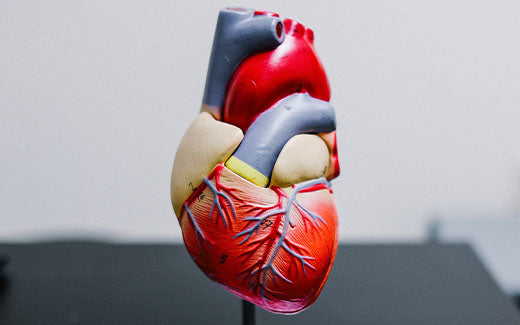Many people can’t convert homocysteine well because of a common inherited gene profile. Similarly, decreasing oestrogen levels or falling thyroid hormone levels can all cause an increase in homocysteine levels, and as this tends to be at an age when we are not absorbing B12 so easily, it may be one of the reasons why cardiovascular health declines at the same time. The good news is that by restoring certain B vitamin levels, including vitamin B12, it is possible to reduce homocysteine to optimal amounts.
The Role of Vitamin B12: Understanding the Basics
Vitamin B12, also known as cobalamin, is a water-soluble vitamin that plays a critical role in maintaining the body's nerve and blood cells. It also aids in the synthesis of DNA and the proper functioning of the nervous system. Found in various animal-based foods such as fish, meat, poultry, eggs, and dairy products, vitamin B12 is an essential nutrient that must be obtained from the diet or supplements, as the human body cannot produce it independently.
Vitamin B12 and Homocysteine: Unraveling the Connection
One of the primary reasons vitamin B12 has become a topic of interest in the realm of cardiovascular health is its relationship with homocysteine. Homocysteine is an amino acid that, when present in high levels, has been linked to an increased risk of cardiovascular diseases such as heart attacks, strokes, and peripheral artery disease. Research suggests that adequate levels of vitamin B12, along with other B vitamins like folate and vitamin B6, can help regulate homocysteine levels within the body, thus potentially reducing the risk of cardiovascular events.
The Evidence: Analysing the Research on B12 and Cardiovascular Health
Several studies have explored the potential link between vitamin B12 and cardiovascular health. A meta-analysis published in the Journal of the American Heart Association in 2018 found that higher circulating levels of vitamin B12 were associated with a reduced risk of cardiovascular disease. Additionally, other research has suggested that supplementation with vitamin B12, along with folate and vitamin B6, may help lower homocysteine levels and consequently reduce the risk of heart disease and stroke.
Vitamin B12 Zooki: Ensuring You're Getting Enough
Vitamin B12 is essential for many bodily functions, and it's crucial to maintain adequate levels. As we can neither make nor store it well in the body ourselves, a daily sachet of Vitamin B12 Zooki presents an easy, effective and delicious way to ensure that your body is consistently replenished with one of the key tools for optimal function. By incorporating this convenient supplement into your daily routine, you can take a proactive step towards supporting your body's overall health and well-being.






Share:
What does Vitamin B12 do? How it works
Can Taking Vitamin B12 Lift Someones Mood?